Why Are Tech Companies Moving To Texas?
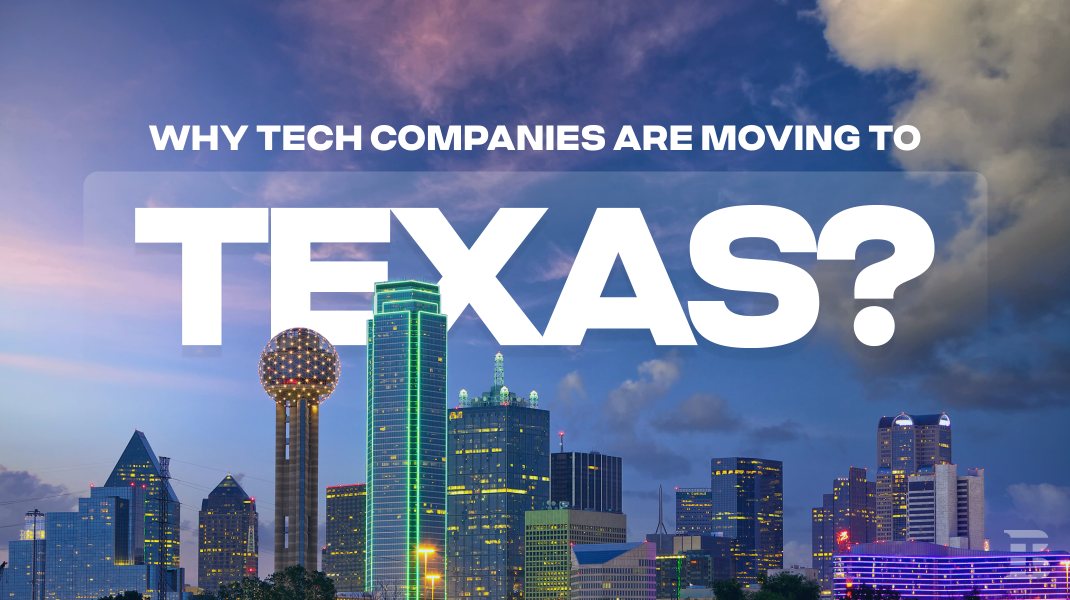
Summary
- According to Forbes, Texas is the second-best state in America for business due to all the opportunities that can be offered to new startups and firms.
- Companies that have already relocated to Texas include Tesla, Oracle, Apple, Amazon, AECOM, CBRE Group, Hewlett Packard Enterprise, and Palantir.
- The main reasons for the relocation are the following: Texas tax structure and relocation fees, labor costs, investment possibilities, and the talent pool.
- Dallas employs 43% of Texas's high-tech workforce and offers appealing job opportunities and competitive salaries.
- Houston is the home of NASA's human space program and the headquarters of the global energy industry, boasting a thriving tech workforce of over 230,800 professionals.
From 2020 to February of this year, at least 139 firms moved their headquarters to Texas, 40% coming from California. After World War II, people relocated to it for a lower cost of living than in New York. They came for opportunities and new possibilities. But then, over the years, California changed course, and it wasn't as pro-growth as previously.
Texas also has a risk of whether or not the state is appropriately investing in the long-term future to ensure its growing success. The Texas model historically has been very slim, and so it has been proudly narrow. Texas's future depends on venture capital and investments in the people who are the workforce of the future.
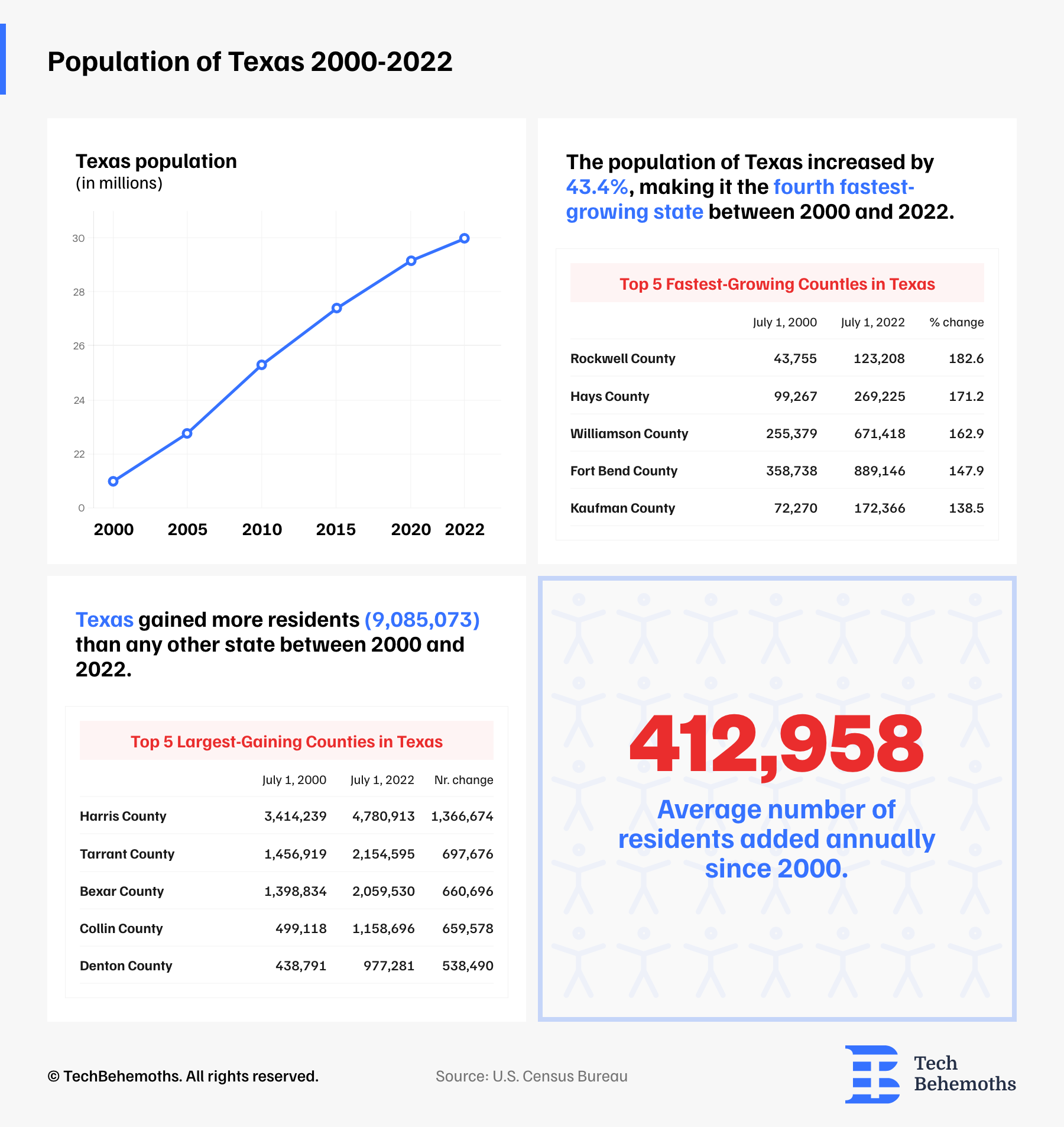
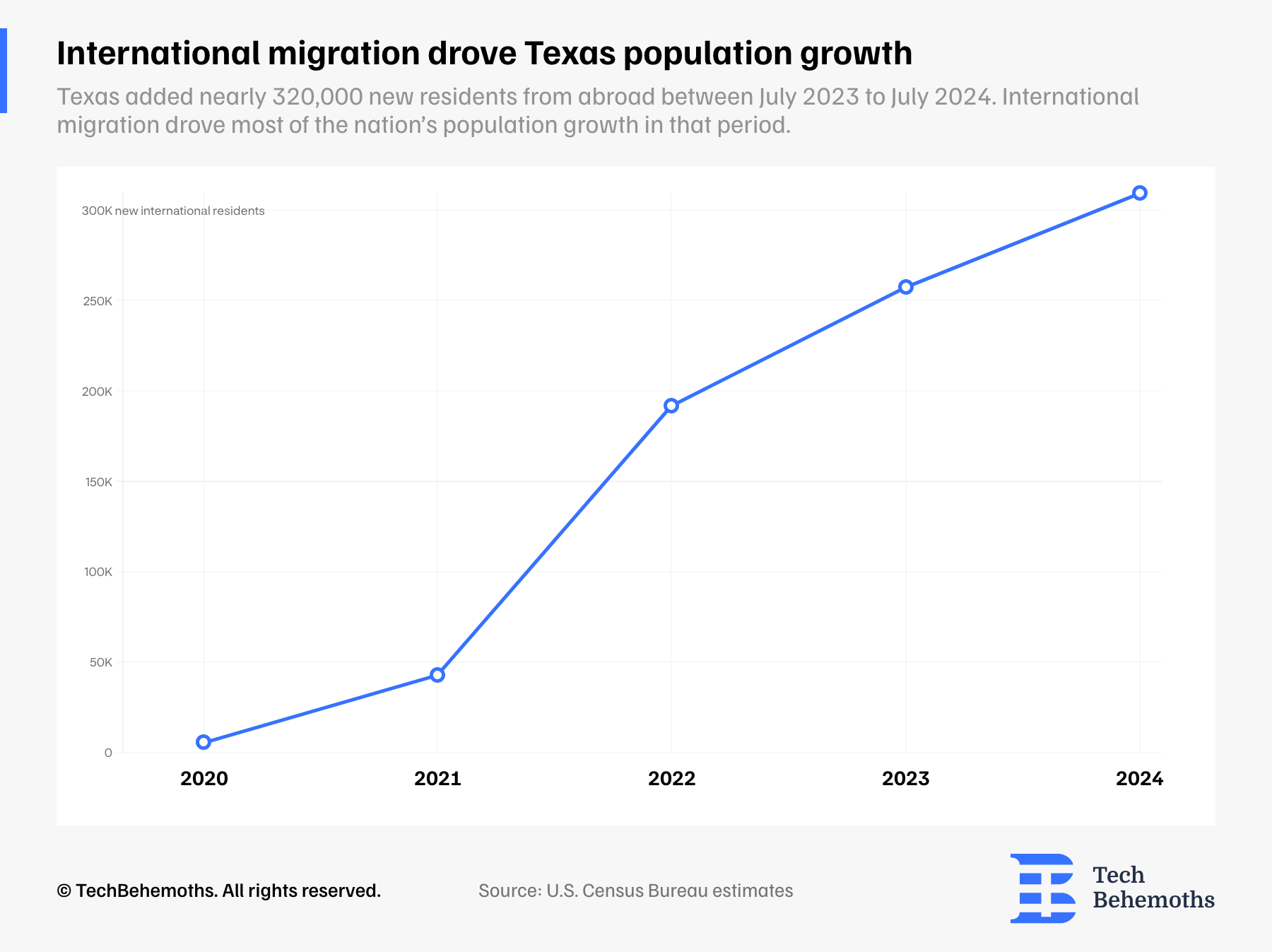
According to Forbes, Texas is the second-best state in America for business due to all the opportunities and possibilities that can be offered to new startups and firms.
Silicon Valley Decline
Silicon Valley was considered for decades as America's innovation capital, home to tech giants like Google, Apple, and Facebook; and unicorns like Uber, DoorDash, and Instacart. Some start-ups are powered by the venture capitalists that populate Sand Hill Road. However its dominance has declined since the pandemic, as lenient remote work policies have fuelled the departures of workers and cleared the way for rising investment in other tech hubs across the United States, especially Austin and Miami.
Silicon Valley is still one of the strongest startup environments, influencing 30% of the U.S. venture funding in 2024, with more than $65 billion in VC investment. However, other states like Miami are also emerging as a good option for investment, with over $2.1 billion in VC funding over 332 deals in 2024. Also, venture capital investments in Austin rose 77% to $4.95 billion with the number of deals growing to 23%.
Despite the 2022 growth, Silicon Valley's share of the total value of venture capital investments in 2024 in the United States was at its lowest since 2012. Almost 250,000 people left the Silicon Valley region during the COVID-19 pandemic, according to census data from April 1, 2020, to July 1, 2022.
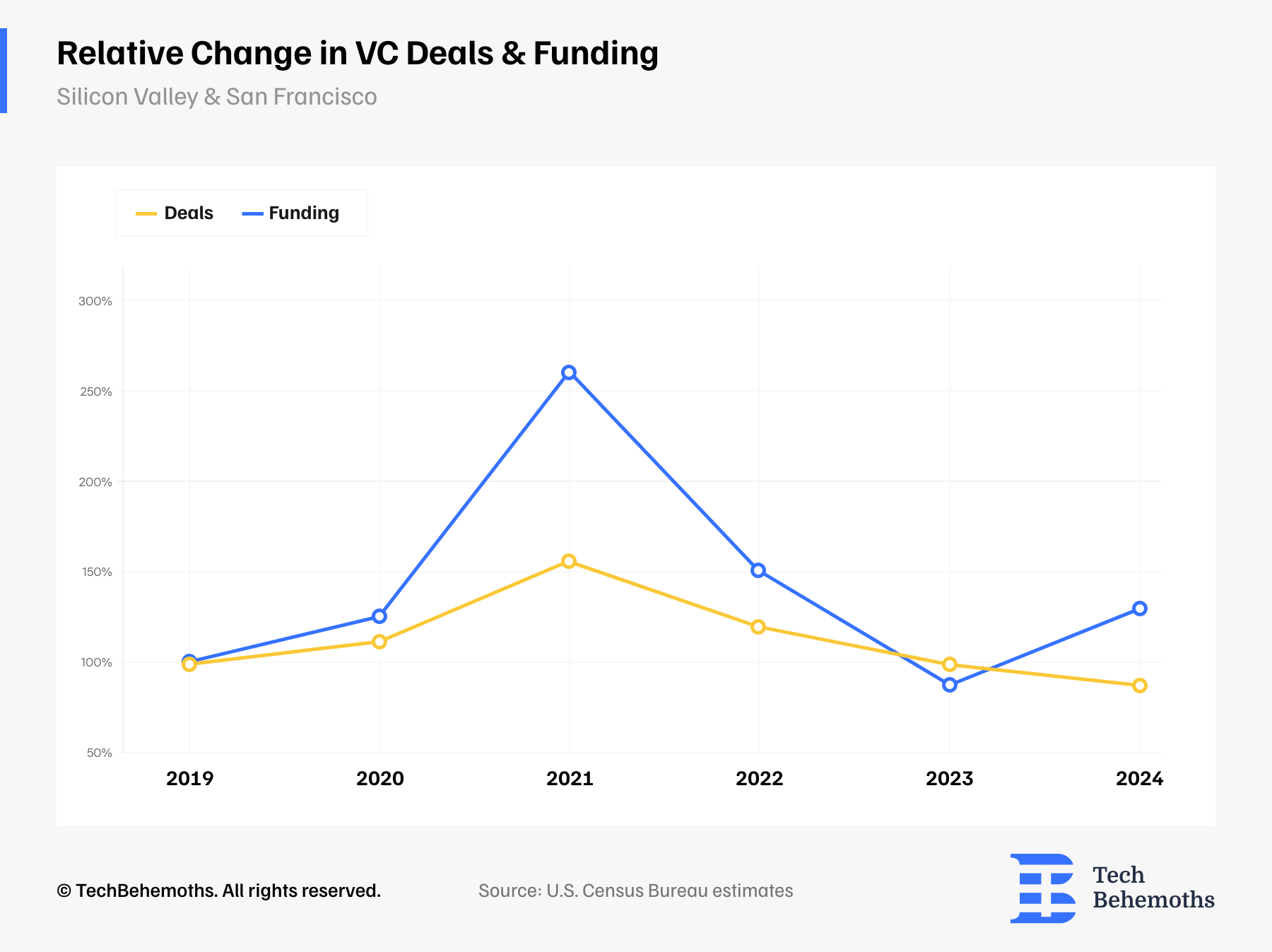
Companies That Relocated
- In 2020, Oracle moved its headquarters to Austin. The company mentioned that its relocation is a part of its policy of giving flexible employee work locations.
- It is said that Apple will set up its second-largest campus in the same place.
- Elon Musk is moving Tesla's headquarters to Texas and is setting up a huge factory with over 7.9-million-square-foot space that will employ around 5000 people. In 2021, Elon Musk moved Tesla's factory headquarters to the city after a row with California regulators, whom he accused of acting like a "monopoly that cannot go bankrupt".
- Hewlett-Packard Enterprise is moving its headquarters to Houston from Silicon Valley.
- Amazon had already chosen Houston as one of its prime hubs for its headquarters a few years back.
- AECOM and the CBRE Group are also companies that are moving to Texas and are included in this city tech network. Greentown Labs has opened the first "climate tech" startup incubator in Houston, which is its second location after Massachusetts.
- In 2020, Joe Lonsdale, the co-founder of Palantir, moved his company to Austin, citing "less stupid rules" and fewer bureaucrats as the reason for upping sticks.
Main Reasons for the Shift
Many tech companies are increasingly moving their headquarters and operations from Silicon Valley to Texas, driven by financial and operational factors. Several factors influence this migration to Texas including tax structures, relocation costs, investment opportunities, real estate affordability, labor expenses, and talent availability.
Texas Tax Structure and Relocation Cost
In Texas, business taxes are lower compared to other states and there is also no personal income. At present, Texas has the lowest combined state and federal corporate tax rate in the U.S. which is 21%. Also, one favorable factor for smaller startups is that Texas has a tax on businesses or franchises that is only 0.375%. For businesses or startups with annual receipts between $1.18 million to $10 million and if it's lower than $1.18 million you don't need to pay any taxes.
The state is also attractive for tech companies thanks to its affordable relocation costs, lower utility and transport expenses and comparatively inexpensive corporate rent. The Texas Triangle is known as an area around Houston, Dallas-Fort Worth, Austin, and San Antonio that offers cost-effective living costs, especially when compared to coastal areas.
Furthermore, Texas's central location in the U.S. enhances its appeal by making moving, transportation, and business operations more convenient.
Investment Opportunities
Texas has become a rival to Silicon Valley for venture financing due to its investor incentives, lower regulatory barriers and a growing network of private and institutional investors. Funding at the early stages is assured by firms like Silverton Partners S3 Ventures and Vista Equity Partners supporting late-stage investments. Additional incentives for job creation and investment are provided by the Texas Enterprise Fund. Many startups are fostered by angel networks and corporate investors such as Dell Technologies. With lower living costs and taxes, startups in Texas can use their funds more efficiently along with venture debt financing from local banks and crowdfunding regulations.
Labor Expenses
Salary expectations in Texas are lower than in California, for example, software engineers in:
This range enables companies to optimize labor costs without sacrificing talent quality.
Employees in Texas benefit from non-existent state income tax. Benefits plans based in Texas often have lower administrative costs and wider provider networks, creating new cost efficiencies for employers.
Talent Availability
Another reason for tech startups and firms to move to Texas is their rich talent pool and the talent costs that are lower than those in Silicon Valley. The rate of domestic migration is increasing because the number of tech companies moving to Texas is rising and this is resulting in the growth of the number of skilled workers across a diversity of industries. The last one is heavily influenced by the large number of higher education institutes in this state.
The state of Texas has a high number of higher education institutions and many of them are specialised in tech and IT industries for example the Texas Tech University (TTU) and Texas State Technological College (TSTC). This fact gives Texas a steady flow of talented graduates from domains of technology, engineering and services into the workforce.
Looking for a Company in Texas?
Check our list of top Companies in Texas
Key Locations in Texas
In recent years, Texas has become something of an oasis for ex-California tech startups looking to escape from Silicon Valley. The main locations in Texas: Houston, Dallas, and Austin, in particular, have developed into technology powerhouses, with the latter earning the nickname "Silicon Hills".
Austin
![]()
Often named "Silicon Hills", Austin has attracted a lot of tech giants and startups alike, transforming the city's technological environment. Austin, Texas has been thriving in recent years due to the growth of its startup culture with an expanding technological sector. Austin is ranked #1 in GDP growth among major U.S. metropolitan areas for 2023-2024 and #4 for the 150 best cities to live in the U.S. in 2024-2025 according to the U.S. News.
Austin's demographic trend suggests a young, educated workforce and an influx of talent in which the University of Texas and Texas Tech University play a fundamental role by supplying skilled graduates. Big tech companies such as Google, Apple, Amazon, Tesla, and SpaceX are choosing Austin for their new offices and expansions.
Austin is a place that offers a variety of possibilities to learn and grow as a tech and IT specialist hosting multiple tech conferences like:
- Data Day Texas
- SXSW
- InnoTech Austin
Austin also has a good tech network supported by the Austin Technology Center (ATC) that provides tech startups and firms with insights, connections, and resources they need to establish themselves.
Dallas-Fort Worth

From an oil and energy hub, Dallas-Fort Worth transformed into a leading tech powerhouse. It has a friendly tech and business environment, a diverse talent pool and also significant contributions from tech giants like AT&T and Texas Instruments.
This city has a lot of advantages to be chosen by tech startups and companies that are looking for a new place to relocate. Dallas-Fort Worth has low taxes, minimal regulations, and an affordable cost of living and housing which makes moving a lot easier for tech firms. And not to forget about the venture capital investments that reached $1.1 billion last year.
Dallas employs 43% of Texas's high-tech workforce and offers appalling job opportunities and competitive salaries. Institutions like the University of Texas (UT Dallas) and Southern Methodist University (SMU) play a significant role by supporting startups and assisting tech talent.
Dallas is positioning itself as a go-to city for building a tech career with companies like Bestow and Cariloop which make a colorful startup scene, alongside major investments and semiconductor manufacturing and other industries.
Houston
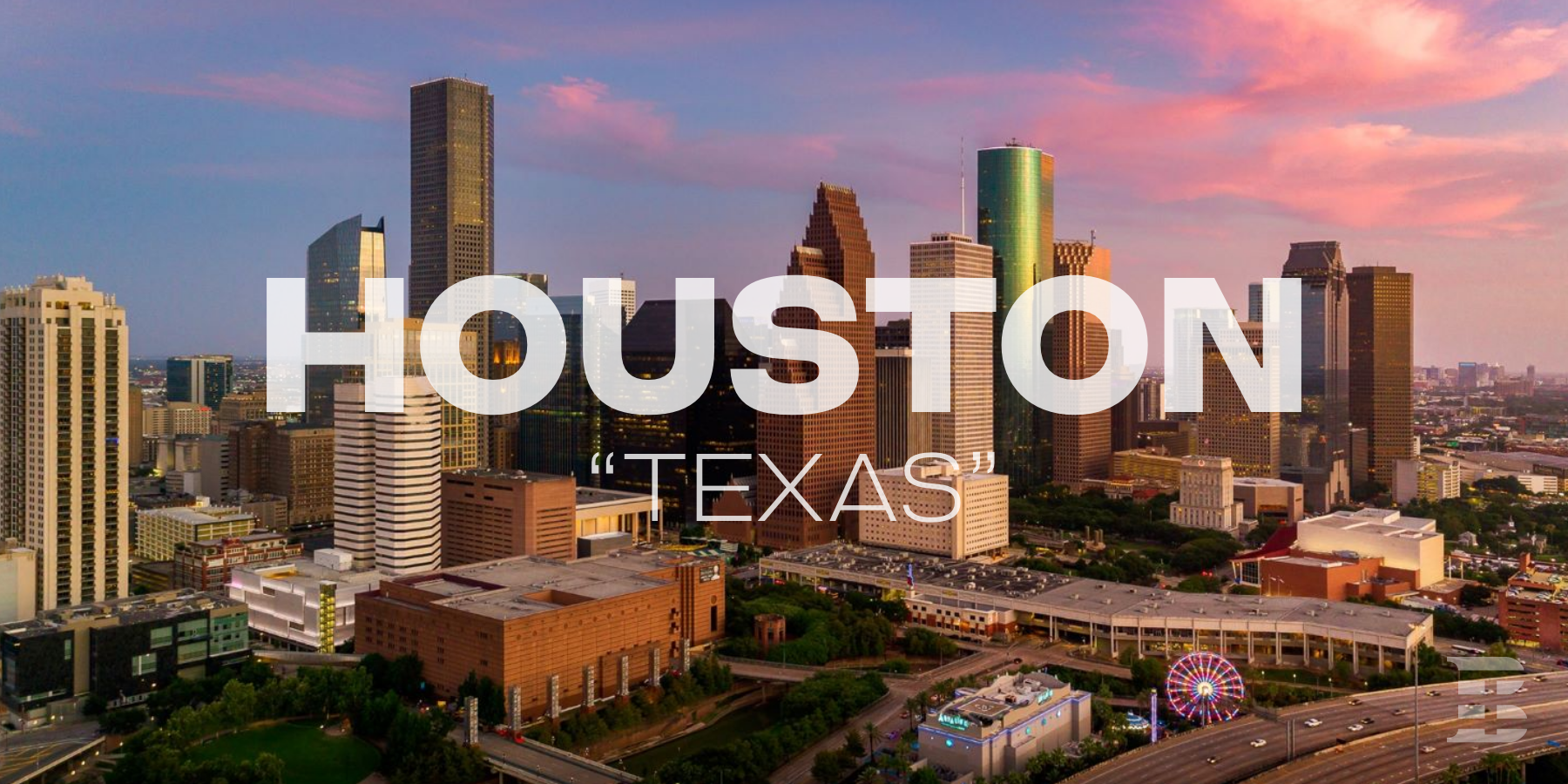
Houston is becoming a major tech hub, specializing in industries like energy, aerospace, and healthcare. It also has growth in domains like software development, database management and programming. In recent years, Houston fostered startups in software by experiencing a surge in innovation hubs, incubators and accelerators.
As the home of NASA's human space program and headquarters to the global energy industry, this city boasts a thriving tech workforce of over 230,800 professionals. Houston startups reached over $1 billion in VC, double the amount raised in the first half of 2024 ($535 million).
This city is emerging in robotics, cybersecurity, industrial loT, and logistics driven by its industry presence and strong corporate. Houston is home to more than 80 startup support organizations, including innovation hubs, accelerators and coworking spaces, for example, the Ion Innovation Hub and Houston Exponential.
A large number of tech companies work in Houston, from giants like Microsoft, HP Enterprise, and Texas Instruments to startups like Sunnova and Alert Logic. What makes Houston an attractive location for tech startups and firms is the symbiote of a strong support system, a rich talent pool, and a growing network of resources.
Challenges of the Move
While having paramount factors to be chosen by the tech and IT industries, relocation to Texas has also some consequences or difficulties that new startups can experience, such as:
- Texas climate, This state is known for its hot and humid summers and severe weather events for example tornadoes, flash floods, and hurricanes. All these phenomena, besides being dangerous for people, can create difficulties in the working process like: power outages, communication breakdowns, supply chain disruption, and others.
- Different cultures, while both of them have a rich cultural diversity, are different in California and in Texas, the last one has its roots in Southern and borderline traditions compared to California's West Coast sensibilities.
- Different infrastructure and services, though Texas is investing in its infrastructure, critics say that in California certain regions offer a better combination of recreational areas, public transportation possibilities, and services.
- Competition to Silicon Valley, while Texas is developing as a tech hub, Silicon Valley remains the center of innovation and technology with resources, talent, and influence.
Despite all these challenges, tech companies are willing to take this risk, because the prospects Texas is giving value much more.
Conclusion
The home to NASA, cowboys, and barbeque, Texas is a rising star in the tech and IT industries attracting new and already established startups and firms due to its many advantages such as
- Texas's tax structure
- Relocation cost
- Investment opportunities
- Labor expenses
- Talent availability
Houston, Dallas, and Austin, in particular, have grown into technology powerhouses and strong innovation hubs, with the latter earning the nickname "Silicon Hills".
While having important advantages and facilities to be chosen by tech startups, Texas as the new dream destination has a few difficulties however it is considered a sanctuary for the tech and IT startups and firms that want to escape the downfall of Silicon Valley by exploring new possibilities that Texas can offer.
Related Questions & Answers
What Impact is the Migration of Tech Companies Having on Silicon Valley’s Local Economy, Talent Pool, and Innovation Output?
What Specific Tech Sectors or Types of Startups Are Driving Growth in Texas? Are There Particular Areas Where Texas is Becoming a New Tech Leader?
What Role is Venture Capital Investment Playing in Supporting the Tech Boom in Texas Compared to Silicon Valley?